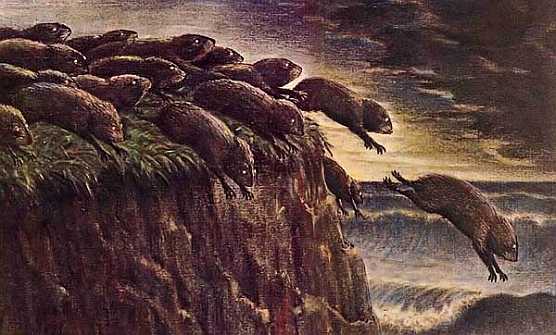Angel
DP Veteran
- Joined
- May 3, 2017
- Messages
- 18,001
- Reaction score
- 2,909
- Location
- New York City
- Gender
- Male
- Political Leaning
- Independent
Then call it something else.
Religion is defined already and is not what you want it to be.
It's my thread, my friend. And yours is not the way language works.
And I replied to a question like yours back on page 2:
Isn't that spirituality? Religion has a definition.
I'm trying to get away from the popular restrictive sense of the word, MrP, and get us to think about the concept more broadly, more in line with one of its etymological sources.
religion, n.
c. 1200, "state of life bound by monastic vows," also "conduct indicating a belief in a divine power," from Anglo-French religiun (11c.), Old French religion "piety, devotion; religious community," and directly from Latin religionem (nominative religio) "respect for what is sacred, reverence for the gods; conscientiousness, sense of right, moral obligation; fear of the gods; divine service, religious observance; a religion, a faith, a mode of worship, cult; sanctity, holiness," in Late Latin "monastic life" (5c.).
According to Cicero derived from relegere "go through again" (in reading or in thought), from re- "again" (see re-) + legere "read" (see lecture (n.)). However, popular etymology among the later ancients (Servius, Lactantius, Augustine) and the interpretation of many modern writers connects it with religare "to bind fast" (see rely), via notion of "place an obligation on," or "bond between humans and gods." In that case, the re- would be intensive. Another possible origin is religiens "careful," opposite of negligens. In English, meaning "particular system of faith" is recorded from c. 1300; sense of "recognition of and allegiance in manner of life (perceived as justly due) to a higher, unseen power or powers" is from 1530s.
Online Etymology Dictionary
Religion (from O.Fr. religion "religious community", from L. religionem (nom. religio) "respect for what is sacred, reverence for the gods",[11] "obligation, the bond between man and the gods"[12]) is derived from the Latin religiō, the ultimate origins of which are obscure. One possible interpretation traced to Cicero, connects lego "read", i.e. re (again) with lego in the sense of "choose", "go over again" or "consider carefully". Modern scholars such as Tom Harpur and Joseph Campbell favor the derivation from ligare "bind, connect", probably from a prefixed re-ligare, i.e. re (again) + ligare or "to reconnect", which was made prominent by St. Augustine, following the interpretation of Lactantius.[13][14] [15]
In the ancient and medieval world, the etymological Latin root religio was understood as an individual virtue of worship, never as doctrine, practice, or actual source of knowledge.[16] The modern concept of "religion" as an abstraction which entails distinct sets of beliefs or doctrines is a recent invention in the English language since such usage began with texts from the 17th century due to the splitting of Christendom during the Protestant Reformation and more prevalent colonization or globalization in the age of exploration which involved contact with numerous foreign and indigenous cultures with non-European languages.[16][17] It was in the 17th century that the concept of "religion" received its modern shape despite the fact that ancient texts like the Bible, the Quran, and other ancient sacred texts did not have a concept of religion in the original languages and neither did the people or the cultures in which these sacred texts were written.
https://en.wikipedia.org/wiki/Religion
The etymology of “religion” is indeed disputed. This is not, of course, the case when it comes to English, which clearly inherited the word from Latin religio. Rather it applies to Latin itself, in which it is not clear what the component parts of the noun religio are or mean. The ancient Romans disagreed about this. Cicero, for example, thought that religio derived from the verb relegere in its sense of “to re-read or go over a text,” religion being a body of custom and law that demands study and transmission.
On the other hand, the Christian writer Lactantius, writing in the early fourth century, opted for religare, a verb meaning “to fasten or bind.” “We are,” he said in his book “Divinae Institutiones,” “tied to God and bound to him [religati] by the bond of piety, and it is from this, and not, as Cicero holds, from careful study [relegendo], that religion has received its name.” Lactantius’s greater contemporary, Augustine, preferred this etymology to Cicero’s while suggesting yet another possibility: re-eligere, “to choose again,” religion being the recovery of the link with God that sin has sundered.
Roots of ?Religion? ? The Forward


